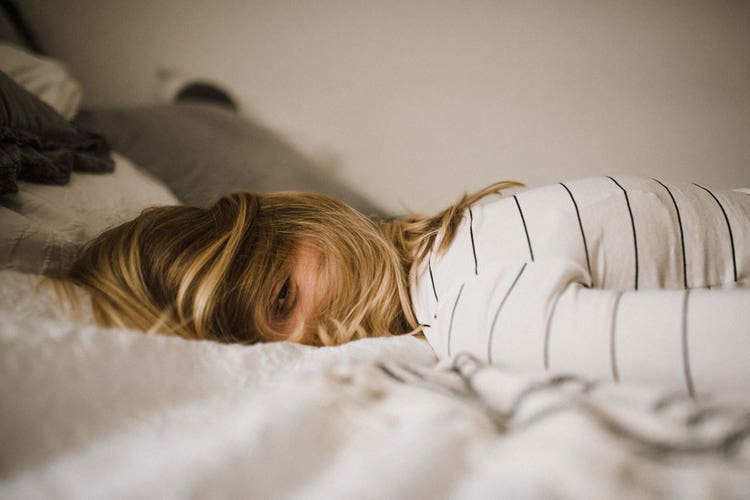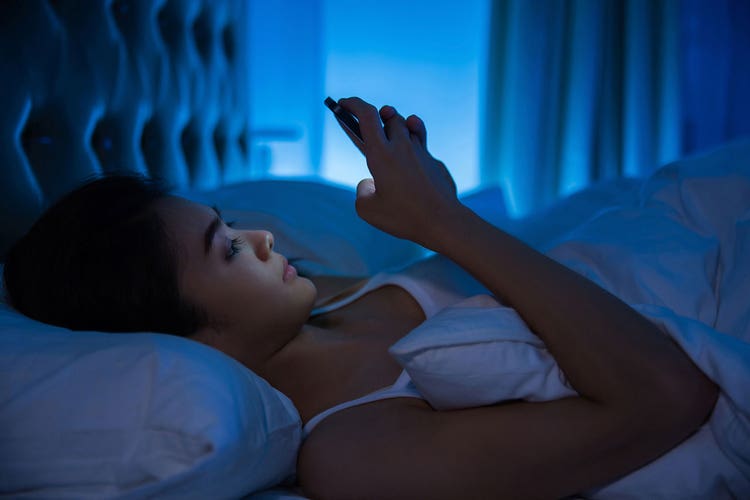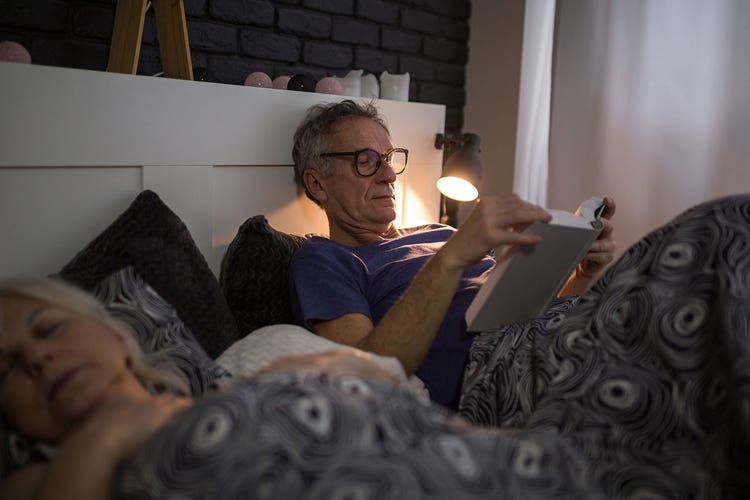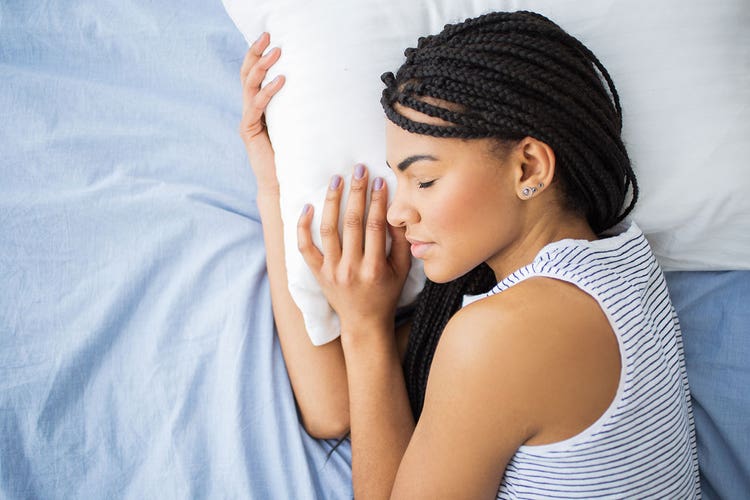In Search of Sleep: A Specialist’s Tips to Take the Work Out of Getting Better Zzz’s

We’ve all had those nights when sleep seems elusive, and no matter how comfy our bed is or how many sheep we’ve counted, the night is spent fitfully tossing and turning until the alarm goes off.
If you find it hard to fall or stay asleep, you’re not alone. The Centers for Disease Control and Prevention reports that more than a third of all Americans are not getting enough sleep on a regular basis.
Yet achieving a good night’s sleep shouldn’t become just another to-do list item that seems like work and creates even more stress in your life, says Dr. William Christopher Winter, author of “The Sleep Solution: Why Your Sleep Is Broken and How to Fix It” (Berkley, 2017), a candid and humorous book that helps readers understand the science of sleep.
“There are few health issues that cause more stress and anxiety than sleep problems and few that are as innocuous and treatable,” Winter says in the opening of his book. A board-certified sleep medicine specialist and neurologist, Winter specializes in sleep in elite athletes. He has advised numerous professional athletic organizations, including the San Francisco Giants and the New York Rangers.
Nicknamed “The Sleep Whisperer,” Winter shares his advice on why he considers sleep to be the third pillar of good health (after exercising and eating a healthy diet) and how to get a better night’s rest.
Pinpoint your sleep problem

If you’ve been having sleep problems for three months or longer and have already tried implementing sleep hygiene tips such as buying a more comfortable pillow or darkening your bedroom, it might be time to consult with a sleep specialist.
“It’s important to look at the real problem and whether you’re having problems falling or staying asleep,” Winter says. “When you’re sleepy, it means you have problems staying awake during the day, but when you’re fatigued, it’s more of a physical feeling of tiredness.”
Winter says it’s not uncommon to see patients who are fatigued to blame their condition on lack of sleep, only to have blood tests reveal they are actually deficient in vitamin D or iron. Those who snore might have sleep apnea, a potentially serious condition during which breathing repeatedly stops and starts throughout the night.
“Sometimes people put off seeing a sleep specialist because they’re embarrassed,” Winter says. “They shouldn’t be because we’ve seen and heard it all before.”
Winter recalls one patient who had delayed seeing a doctor because she heard exploding sounds when falling asleep or waking up and thought she might be going crazy.
“She was actually suffering from exploding head syndrome, a type of parasomnia or sleep disorder that occurs during the transition between sleep and waking up,” Winter says. “For many people with this syndrome, just getting reassurance from their doctor that it’s just a hallucination is enough for them to go into remission.”
Determine how much sleep you’re really getting

Winter says it’s not unusual for people to have misconceptions about how much sleep they’re actually getting each night.
“I’ve had patients claim they haven’t slept in months,” Winter says. “Yet when they start keeping a sleep diary or using a sleep tracker app or wearable, they discover they’re actually sleeping six hours a night.”
While some experts, including the National Sleep Foundation, recommend adults get seven to nine hours of sleep each night, Winter says the exact amount of sleep each person requires can vary.
“The average person may need eight hours of sleep each night, but some people might find they function better on six and a half hours,” Winter says.
Keep a sleep schedule

Whenever possible, Winter recommends trying to go to bed and wake up at the same time each day. By sticking to the same schedule, your body can settle into a regular sleep/wake cycle.
Establishing a nightly ritual also can help, Winter says, whether that involves meditating, reading a book or watching a TV show. Just remember to keep televisions and smartphones out of the bedroom because the blue light emitted from screens can restrain the production of melatonin, the hormone that controls your sleep/wake cycle.
Find yourself going to bed at 10 o’clock and still awake at midnight? Winter suggests adopting a later bedtime and seeing if that helps.
“A lot of people think that because their spouse or family goes to bed at a certain time that they need to make that their bedtime,” Winter says. “The reality is we all have different schedules and how much sleep each of us needs is very individualized.”
Creating a sleep schedule also means maintaining consistency during the rest of your day, according to Winter. He recommends exercising, preferably first thing in the morning, and eating regular meals.
Ditch the sleeping pills and embrace these foods

While it might seem harmless to pop a sleeping pill or even an antihistamine such as Benadryl that causes drowsiness, Winter says medications should only be used sparingly.
“For someone who has lost their job or had a death in their family, a prescription sleeping pill such as Ambien might be appropriate for a short period of time,” Winter says. “But when people start to feel they can’t sleep without taking a pill first, it can become a problem.”
Rather than reaching for medication, Winter suggests having a handful of nuts such as cashews or peanuts. Both offer a good source of magnesium and encourage relaxation and sleep. Yogurt and other dairy products are also a good choice because they contain sleep-inducing tryptophan. Be sure to avoid caffeine and alcohol before bed because both can disrupt your sleep.
“I jokingly tell my patients that if they want a glass of alcohol, have it for breakfast instead of before bed because they’ll sleep better,” Winter says. “While drinking alcohol may relax you, it interferes with your sleep quality and can leave you feeling tired the next day.”
Don’t stress out

For some people, worrying about sleep can become a full-time job. Winter notes that stress and anxiety can cause sleep problems and worrying about not sleeping makes the problem worse.
“Fear and anxiety are the root causes of insomnia for many people,” Winter says. “Worrying about not sleeping keeps us awake, but when people give up stressing about getting a good night’s sleep, insomnia loses.”
Winter encourages his patients to remove phrases such as “I can’t sleep” from their vocabulary.
“Instead of worrying about being awake, I look at bedtime as giving me the chance to rest,” Winter says. “If you can embrace that idea that yes, you’re awake but it’s not a huge problem and you’ll fall asleep when you’re tired, the stress response recedes.”
Video credit: Ian Anderson231, Shutterstock;
Photo Credit: Kinga Cichewicz, Unsplash; fizkes, Thinkstock; torwai, Thinkstock; InnerVisionPRO, Thinkstock; mapodile, Thinkstock; MangoStar_Studio, Thinkstock